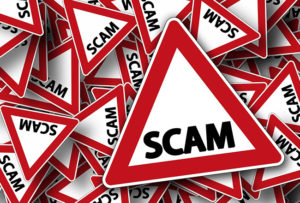An alleged six-year scheme that was disclosed in White Plains federal court on Wednesday illustrates both the potential and the limitations of the sliver theory of theft.
Mark Timothy Mushkin, 52, of Laguna Beach, California, was accused of tricking 878 small businesses into paying him more than $3.3 million for copier toner that was never ordered or delivered.
 The idea of the sliver scam is that you can pocket a lot of money by taking just a little bit, or a sliver, from many people. Each rip-off is too small to spark law enforcement curiosity, but collectively, the swindles add up to a big pile of money.
The idea of the sliver scam is that you can pocket a lot of money by taking just a little bit, or a sliver, from many people. Each rip-off is too small to spark law enforcement curiosity, but collectively, the swindles add up to a big pile of money.
The key is to keep it small. Do not get greedy. Do not exploit the same sucker again and again.
Mushkin, as depicted in a criminal complaint unsealed in federal court, failed to fly under the radar.
He allegedly set up a phony company, IT Tech Products, and mostly targeted law firms.
In 2011, the complaint states, he invoiced a White Plains law firm for two units of Xerox toner for $858. An employee of the firm, which is not identified, knew that toner had not been ordered, spoke with someone at IT Tech and complained to the Better Business Bureau of California.
The White Plains firm received another copy of the invoice marked “void ”“ canceled.”
Whenever someone questioned the invoices, according to a news release from U.S. Attorney Geoffrey S. Berman, Mushkin issued refunds, “allowing him to continue operating his scheme undetected.”
But several years later, in 2017, IT Tech invoiced the law firm again, for four units and $1,676. This time the firm notified law enforcement.
Another unnamed law firm in White Plains was billed $1,676 for four toner units. The firm paid. Then two months later it received a $2,514 bill for six units. An employee realized that the copier contract included free toner and did not pay.
A Manhattan law firm was billed for four consecutive months in 2016. It paid the first three, totaling $6,746, but balked at the last bill when an employee realized that no toner had been ordered. A call was made to IT Tech, and the firm received refunds.
Complaints were piling up with the Better Business Bureau, Federal Trade Commission and U.S. Postal Inspection Service.
Postal inspector Daniel Gabel got on the case.
He discovered that a Mark Mushkin had registered IT Tech in January 2011 using a fictitious Huntington, California, address. Mushkin also applied for a P.O. Box in Costa Mesa, using the phony address.
Gabel reviewed surveillance video of the P.O. Box and matched photographs of Mushkin to the person retrieving mail from IT Tech”™s box.
The inspector”™s findings illustrate another maxim of larceny: If your gross is net, you are rich. That is, if you don”™t have many expenses, most of the money you get is profit.
From 2011 to 2017, the complaint states, 1,919 checks totaling $3,334,238 were deposited in IT Tech”™s bank account.
The account shows $128,370 in refund checks and $8,953 for mailings. Mushkin also purchased 96 toner units in 2011 at an undisclosed price. Even at the $429 per unit that IT Tech charged, the toner would have cost no more than $41,184.
Thus, IT Tech”™s expenses for refunds, mailings and toner were less than $178,507. Barring other expenses, and based on the numbers alleged in the complaint, IT Tech netted nearly $3.2 million and a profit of at least 95 percent.
The expense ledger does not include the cost and consequences of fighting the feds. Mushkin was accused of one count of mail fraud, with a maximum penalty of 20 years in prison.



















